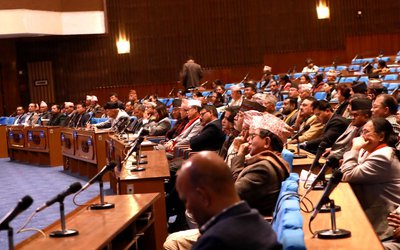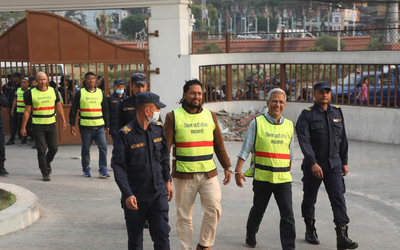More on News





Cyber laws have become essential in view of the rapid developments in information technology. Online communication has given rise to a new global commerce in ideas, information and services. Information Technology (IT) is changing almost all aspects of human activity like communication, trade, culture, education, entertainment, and knowledge. With the rapid advances in computer technology over the past few years, there has been increasing concern in many countries for the need to develop and modernize the law in order to take full advantage of technological improvements and at the same time to guarantee that states can respond to computer crime and related criminal law issues associated with these developments.
The cyber law encompasses a wide variety of legal issues which includes intellectual property, privacy, freedom of expression, and jurisdiction.
Nepal’s Case
Prior to 2004, the government of Nepal dealt with cyber crimes under the Public Offence Act. Nepal Police dealt with cyber crimes but they were not aware about the technical aspects of these crimes, which meant that the sanctions were not effective and relative to the crime.
Later The Electronic Transaction and Digital Signature Act 2004, also known as the cyber law, was passed. This law was forecast to be a landmark legislation for the development of IT industry in Nepal.
Under Act of 2004, hacking, deleting data, stealing e-documents, software piracy and posting defamatory information invite criminal and civil sanctioning to individuals and institutions. Under this law, the government can punish cyber offenders with up to five years of imprisonment and/or a fine of up to fifty thousand rupees. However, much depends on the severity of the crime. The law has tightened the security for banking transactions through electronic means, which should boost the economic activities across the Internet via Nepal.
The biggest challenge before the cyber law is its integration with the legacy system of laws applicable to the physical world. Since cyberspace has no geographical boundaries, nor do the Netizens have physical characteristics of Sex, Age etc, several conflicts surface when the rights of Netizens are viewed from the eyes of citizens of a physical space. This is well reflected in the conflict between the trade mark laws and system of domain names.
The unique structure of the Internet has raised several legal concerns. While grounded in physical computers and other electronic devices, the Internet is independent of any geographic location. While real individuals connect to the Internet and interact with others, it is possible for them to withhold personal information and make their real identities anonymous. If there are laws that could govern the Internet, then it appears that such laws would be fundamentally different from laws that geographic nations use today. Since the Internet defies geographical boundaries, national laws will no longer apply. Instead, an entirely new set of laws will be created to address concerns like intellectual property and individual rights. In effect, the Internet will exist as its own sovereign nation.
In comparison to traditional print-based media, the accessibility and relative anonymity of cyber space has torn down traditional barriers between an individual and his or her ability to publish. Any person with an internet connection has the potential to reach an audience of millions with little-to-no distribution costs. Yet this new form of highly-accessible authorship in cyber space raises questions and perhaps magnifies legal complexities relating to the freedom and regulation of speech in cyberspace.
In many countries, speech through cyberspace has proven to be another means of communication which has been regulated by the government. The Internet offers extraordinary opportunities for "speakers," to express themselves. Political candidates, cultural critics, corporate gadflies, anyone who wants to express an opinion about anything, can make their thoughts available to a world-wide audience far more easily than has ever been possible before. A large and growing group of Internet participants have seized that opportunity. Some observers find the resultant outpouring of speech exhilarating. They see in it nothing less than the revival of democracy and the restoration of community. Other observers find the amount -- and, above all, the kind of speech that the Internet has stimulated offensive or frightening. Freedom of speech and expression and cyber law are related.
Freedom of Expression
As internet is also a means of expressing speech so restriction provided through cyber law can be challenged under violation of freedom of speech and expression under any constitution and article 12(3a) of The Interim Constitution of Nepal 2007, provides freedom of speech and expression as a fundamental right. Restriction on website can also be treated as violation of freedom of speech and expression. Thus cyber law can be challenged on basis of the violation of freedom of speech and expression clause, if according to cyber law a particular website is prohibited then through that you cannot express and other person can’t know as other person’s right to know is also violated. As cyber law is in a developing phase so different questions will be raised regarding cyber law and its applicability.
UPRETI is a BSC. LLB (Hons)
Email: Upretipratyush@gmail.com







